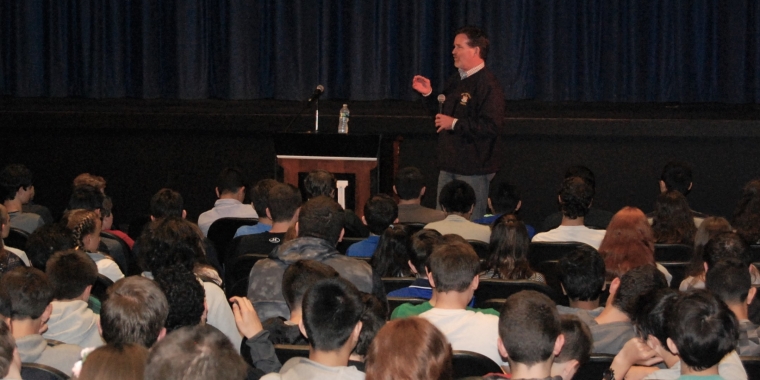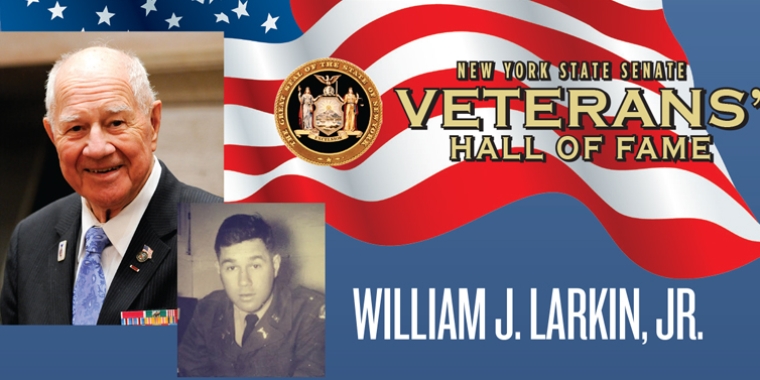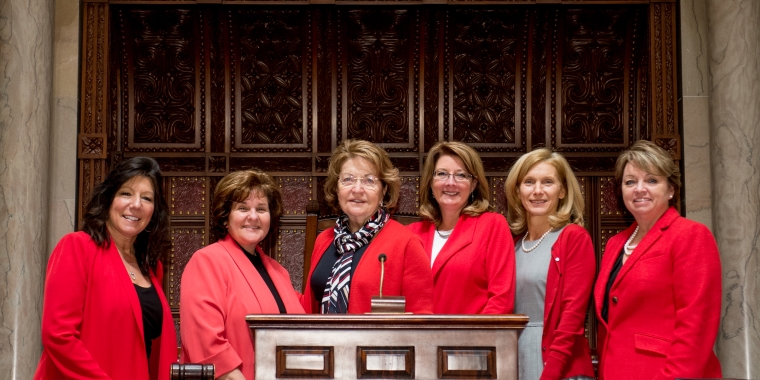
Senate Passes Bills To Make New York H.a.v.a. Compliant, Calls On Assembly To Reconvene Conference Committees

The New York State Senate today passed a comprehensive package of legislation, sponsored by Senator John Flanagan (R-C, East Northport), which would bring the state into full compliance with the federal Help America Vote Act of 2002 (HAVA). If enacted into law, these bills would improve and enhance voter access and free approximately $219 million in federal funds to modernize voting machines and improve procedures.
In an effort to expedite the process and meet the federal deadlines, Senate Majority Leader Joseph L. Bruno today announced his appointments to a new joint legislative HAVA conference committee and called on the Assembly to reconvene conference committees if they were unwilling to pass the Senate’s plan. Senator Bruno named Senator Flanagan (Conference Committee Co-Chair and Chairman of the Senate Elections Committee), Senator Nicholas Spano, Senator Serphin Maltese and Senator George Maziarz.
"This legislation is a critical step toward enacting the federal Help America Vote Act of 2002 in New York State. It represents the first major overhaul of New York State’s election process in over 50 years, and the federal government has given us a quarter-of-a-billion dollar incentive to efficiently implement HAVA," said Senator Flanagan, Chairman of the Elections Committee. "Last year, there were substantial areas of agreement during the HAVA conference committee, and our package of bills represents the advances we believe were made. It is imperative that we act quickly to restart negotiations to resolve differences between the state Senate and Assembly over implementing HAVA."
"This package of bills will help protect and advance the fundamental principle of citizen participation and fair elections by bringing New York into compliance with federal HAVA standards, facilitating effective participation in the election process, and ensuring the integrity of the process," said Senate Majority Leader Joseph L. Bruno. "Since we are on a federally imposed deadline, I encourage the Assembly to act on this legislation or reconvene conference committees immediately to ensure fair, orderly elections and preserve the funding the federal government has allocated to meet these objectives."
"Most importantly, this bill will protect the integrity of our election process, ensure that every vote counts, safeguard against fraud and meets the requirements of special needs voters," concluded Senator Flanagan. "Fair, honest and verifiable elections are essential, and these bills will ensure that the millions of New Yorkers who go to the polls on Election Day will have a better election experience and the 60,000 election workers will be able to deliver better elections."
The Senate HAVA package is based upon negotiations at the end of last year’s joint legislative conference committee on HAVA, would fully address the federal government’s requirements and allows for the release of approximately $219 million in federal funds.
The plan would allow New York State to access approximately $153 million in second round federal HAVA funding by meeting the requirement to develop a statewide administrative complaint procedure and provide five percent of the federal funds in state matching funds ($7.7 million). The $66 million from the first round of federal HAVA funding, presently held in an account with the Comptroller, can be utilized when agreement is reached on how to modernize voting machines to meet HAVA’s standards.
With the $7.7 million in state matching funds combined with the $219 million in federal funds, New York will have a total of nearly $227 million. Additionally, a third and final round of federal HAVA funding was initially scheduled, but the federal government has yet to act.
These funds will then be used to meet two critical HAVA deadlines-- having at least one handicapped accessible voting machine in every election district by the first federal election in 2006, and having a statewide voter registration list in place and being used by January 1, 2006.
The Senate plan would address the requirements with six specific bills, including:
The State Board of Elections (SBOE) is required to adopt HAVA-compliant voting machine standards and certify that voting machines meet these standards. Currently, SBOE uses a pre-HAVA certification standard. New federal HAVA standards are expected to be released soon by the Elections Assistance Commission (EAC), which was created under HAVA to draft HAVA compliant voting machine standards.
If SBOE certifies that a machine meets the standard, then it is eligible to be purchased by SBOE for counties, cities and towns to replace their existing machines. After purchase, SBOE will then transfer title of the machines to the county, city, or town. This process would ensure bulk purchase savings and that manufacturers provide owners with educational and technical support.
This bill would also:
- require voting machine manufacturers to place vital source code and other information in escrow with the SBOE to prevent fraud, tampering, etc.;
- Provide for a voter-verified paper receipt to be part of all new voting machines;
- Provide for training and education of local BOE employees and the public on the new machines;
- Provide for a random 3% audit of all voting machines after an election.
Also for the first time, local BOEs must report these actions to SBOE. Furthermore, the bill authorizes SBOE to implement rules on purging requirements, to provide maintenance standards for and technical support to local BOEs in relation to maintaining the list, and for timely and immediate access to the list.
The bill will help prevent fraud by allowing the SBOE to purge voters with multiple registrations to ensure that deceased individuals and people who are no longer eligible to vote due to criminal conviction are removed from the list of eligible voters in a timely and efficient manner.
Local BOEs are charged with investigating a voter with multiple registrations in different counties. The county where the person was first registered must purge the person from their list.
This bill incorporates all issues negotiated with the Assembly from last year. The bill still allows local boards to purge their lists, but for the first time ever authorizes the SBOE to hold them to deadlines and reporting requirements that never existed before.
Statewide Administrative Complaint Procedure: (S.1811) Sets up a HAVA mandated complaint procedure to be administered and decided by the SBOE. Requires SBOE to decide a complaint within 90 days or the matter gets sent to an alternative dispute resolution process, governed by SBOE rules and regulations to ensure uniformity. This bill (coupled with providing five percent of the federal funds in state matching funds) will enable New York to access approximately $153 million in second round federal HAVA funding. This bill incorporates all issues negotiated with the Assembly last year.
Voter Verification bill: (S.1810) HAVA requires that all new voter applications must be verified before they can be accepted and the person considered registered. Under current state law a person is presumed registered when they send in their registration application. Therefore, this necessitates affirmative steps after registration to remove ineligible voters from the rolls.
HAVA’s verification provisions require that a person provide their local board of elections (BOE)with either their driver’s license number (the Senate bill also includes the use of a non-driver’s ID issued by DMV) or the last four digits of their social security number. In the event they have neither of the above, a unique number will be assigned to them by a BOE before their application can be processed and accepted.
Voter ID bill: (S.1814) HAVA requires first time voters/registrants who registered by mail without providing proper proof of their identity to show one of four forms of ID at their polling place before they can vote: a "valid photo ID," a "utility bill," a "bank statement" or "other government document." If the person doesn’t provide ID at the polling place they can still vote by affidavit ballot.
A bill was chaptered last year that met HAVA’s ID requirements, however it is due to sunset on July 1, 2005. The provisions of this bill were effectively administered by all the local BOEs throughout the State. The new Senate ID bill would make these same requirements permanent.
HAVA Fund bill: (S.1812) Sets up a fund with the Comptroller to receive federal HAVA funds and to distribute these monies to the State Board of Elections, counties, and towns.



